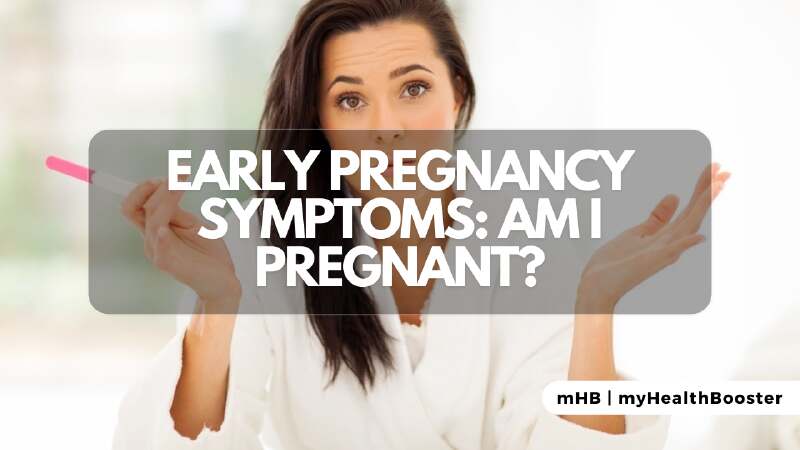Discovering whether you are pregnant can be a pivotal moment, and recognizing early pregnancy symptoms is crucial. This article delves into the various signs and symptoms, the reliability of home pregnancy tests, and details about both early and later stages of pregnancy.
Early Pregnancy Symptoms
The onset of early pregnancy symptoms can vary among women, occurring either in the first weeks of the first trimester or later in the pregnancy. Some symptoms may even resemble premenstrual signs, leading to potential confusion.
Home Pregnancy Tests and Timeliness
Home pregnancy tests rely on detecting human chorionic gonadotropin (hCG) in urine, a hormone produced after implantation. Testing too early may yield false negatives, as hCG levels increase daily. Accurate results are more likely when testing one week after a missed period. Persistent doubt after negative tests warrants consultation with a doctor who can conduct a blood test, providing earlier detection.
Variability in Pregnancy Symptoms
Pregnancy symptoms differ among women and pregnancies, varying in quality, severity, and onset. The article emphasizes the uniqueness of each woman’s experience and underscores the significance of hCG levels in diagnostic tests.
Common Early Pregnancy Signs
The article outlines 16 common early pregnancy symptoms, ranging from a missed period and implantation bleeding to breast changes, fatigue, and mood swings. These symptoms, occurring in the first weeks of pregnancy, offer insights into potential early indicators.
Later Symptoms and Signs
As pregnancy progresses, symptoms like mood changes, headaches, and increased urination persist, while some, like breast tenderness and nausea, may improve. The article details eight later symptoms related to the growing uterus, weight gain, heartburn, and other physical changes that manifest in the second and third trimesters.
Relief and Soothing Measures
Home remedies and self-care strategies are discussed to alleviate pregnancy symptoms. Exercise, a supportive pregnancy girdle, proper sleep posture, and a well-balanced diet are highlighted as ways to manage discomfort. The importance of consulting a healthcare professional before taking any medications or supplements during pregnancy is emphasized.
Pregnancy Symptoms vs. PMS
Drawing a comparison between early pregnancy symptoms and premenstrual syndrome (PMS), the article explores the similarities, such as breast tenderness, fatigue, and mood swings. It emphasizes the challenge of distinguishing between the two until confirmation through a positive pregnancy test or the onset of menstruation.
Conclusion
This comprehensive guide provides valuable insights into early pregnancy symptoms, home pregnancy tests, and the varying experiences women may encounter during different stages of pregnancy. It encourages seeking medical advice for accurate diagnosis and highlights the significance of self-care measures to enhance overall well-being during pregnancy.
References
- Rigby, F.B. “Common Pregnancy Complaints and Questions.” Medscape. Apr. 8, 2020.
- American Pregnancy Association: “Early Signs of Pregnancy.”
- Cleveland Clinic: “Cryptic Pregnancy.”
- Cleveland Clinic: “Causes of a False Positive Pregnancy Test.”
- Kids Health: “Irregular Periods.”
- Office on Women’s Health: “Knowing If You are Pregnant.”
- Office on Women’s Health: “Your Menstrual Cycle.”
- Office on Women’s Health: “Prenatal Care and Tests.”
- National Health Service: “How can I increase my chances of getting pregnant?”
- University of Michigan: “Missed or Irregular Periods.”
- Fertility Coalition. Your Fertility right time for sex.
- American Pregnancy Association. Can You Get Pregnant on Your Period?
- Wilcox AJ, Dunson D, Baird DD. The timing of the “fertile window” in the menstrual cycle: day specific estimates from a prospective study. BMJ. 2000;321(7271):1259-1262.
- Journey House Pregnancy Resource Center. How Soon After Sex Can I Know If I’m Pregnant?
